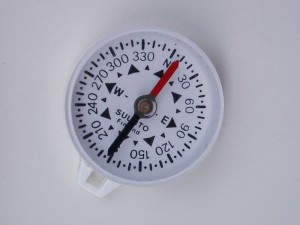Confusion and misunderstandings abound when thinking about legal documentation like a Will. People often ask: Do I need a Will? What if I die without one? What is Probate and shouldn’t I try to avoid it? What kind of assets do I have and what will happen to them? Maybe you have even more questions. Remember that an Estate Planning Professional can assist you with these questions – all deserve an answer. But, this post is designed to describe the three types of assets a person will typically have, and outline how those assets are distributed under a basic Will.
- JOINT ASSETS
Joint assets are assets that you own “jointly” (together) with at least one other person. These assets, unless indicated otherwise, are wholly owned by each of the joint owners. In other words, the entire asset belongs entirely to both of you (as opposed to 2/3 belonging to one and 1/3 belonging to the other). A bank account is a good example, or a home. If you own your account or home jointly with at least one other person, it would pass outright at your death to the surviving joint owner(s) – without the need for the probate process (why this is so is explained below in No. 2). Beware: Joint Ownership must be adequately documented. Be sure your home, for example, is titled properly. Tenancy in common is not the same thing, and often the additional phrase “with right of survivorship” is important. In short, proper documentation is essential. If you’re unsure, ask about it.
This is not limited to just bank accounts and homes, of course. Almost anything can be owned jointly.
- PROBATE ASSETS
Probate assets, on the other hand, pass at your death through the process called probate. The simplest way to explain the probate process is to describe it as a “supervised re-titling process” for assets titled in the deceased’s name only. So, when an asset is titled only in your name, the probate court must oversee the process of re-titling the asset into someone else’s name according to the instructions in your Will, or based on the inheritance laws of your state if you didn’t leave a Will. In the probate process, the court would also oversee and ensure your taxes and expenses were paid, your personal property was distributed according to your instructions, and the remainder or residue (whatever is left over) would go to whomever you named. If you didn’t name anyone, the state statutes would again guide the court.
- NON-PROBATE ASSETS
Non-probate assets are assets for which you have named a beneficiary. Insurance policies and retirement accounts are most common. These assets pass outright to whomever you name as a beneficiary. So, like joint assets, because the ownership after your death has already been defined/confirmed, there is no need for these assets to pass through the probate process.
If you’re thinking about your estate plan and creating estate-planning documents, your estate-planning professional will need you to name and describe your assets. Your Estate Planning professional can then assist you in deciding what types of documents you require to ensure that your assets serve you during your lifetime and pass to whom you wish in the most appropriate and efficient manner after your death. Like I’ve said before, it’s never too early to plan, but it can be too late.
This blog is written by Bridget-Michaele Reischl, Attorney DECORO LAW OFFICE, PLLC www.decorolaw.com
